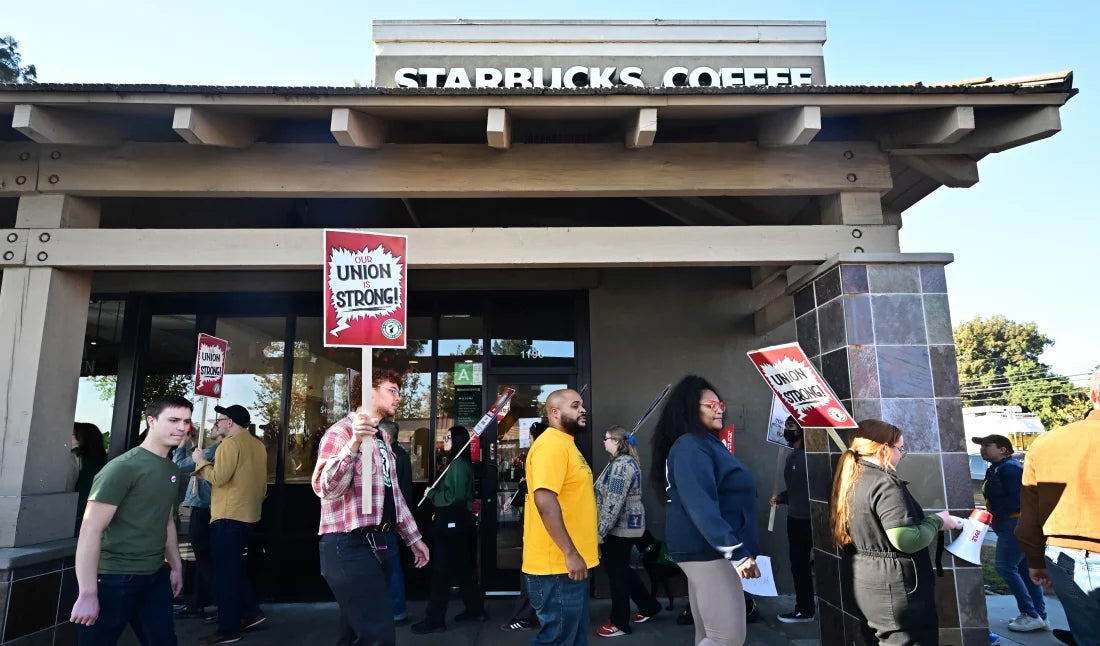

Starbucks baristas have initiated a significant strike, termed 'the strike before Christmas,' which has now reached over 300 stores across the United States as of December 24, 2024. This labor action began on December 20, 2024, in major cities including Los Angeles, Seattle, and Chicago, and has since expanded to include locations in Philadelphia, Pittsburgh, and Boston [0ae0dc6b]. Workers are demanding fair contract negotiations, citing the company's failure to establish a foundational framework for collective bargaining as a primary concern [0ae0dc6b]. Starbucks Workers United (SBU) claims this is the largest unfair labor practices strike in the company's history, with a striking vote of 98% in favor due to unresolved unfair labor practice charges and inadequate wage proposals [0ae0dc6b].
As of now, Starbucks has reported that approximately 60 stores are closed due to the strike, while 97-99% of locations remain operational [0ae0dc6b]. The union is advocating for a base wage of $20 per hour, annual raises, and improved benefits, arguing that the current compensation does not meet the rising cost of living [0ae0dc6b]. Conversely, Starbucks contends that the union's wage proposals are unrealistic, stating that baristas earn an average of $18 per hour, with total compensation valued at about $30 per hour [0ae0dc6b].
In parallel, Amazon workers are also striking, demanding union recognition and better working conditions as the holiday season intensifies. The strikes at both companies are seen as a critical moment for labor rights, especially with the impending changes expected under the Trump administration, which may roll back labor protections [2df686a3]. Workers have accused their employers of refusing to recognize unions and engaging in union-busting tactics, with complaints filed with the National Labor Relations Board (NLRB) alleging coercion and threats [2df686a3].
The ongoing strikes have raised concerns about customer experiences and operations during the busy holiday season, as both companies face increasing pressure from their workforces to address their demands [0ae0dc6b]. Labor leaders have expressed concern that these strikes may be one of the last chances to pressure companies before the new administration takes office, which could significantly alter the landscape of labor rights [2df686a3]. Unless negotiations resume, the strikes are expected to escalate further, potentially impacting more locations and drawing attention to labor rights within the fast-food and retail industries [0ae0dc6b].